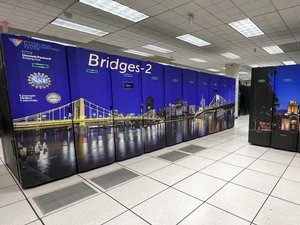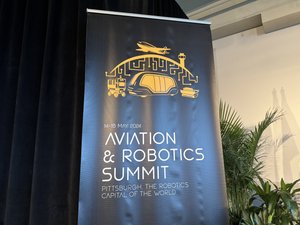
Earlier this week, OpenAI debuted GPT-4o, a new version of its flagship generative artificial intelligence. This upgrade was different than previous ones; although it included speed increases, the priority was on the user interface.
"This is the first time that we are really making a huge step forward when it comes to the ease of use," OpenAI CTO Mira Murati said during a presentation debuting the upgrade. "We're looking at the future of interaction between ourselves and the machines. We think GPT-4o is really shifting that paradigm into the future of collaboration where this interaction becomes much more natural and far, far easier."
A report from Microsoft and LinkedIn found that in Pittsburgh, 61% of knowledge workers are currently using a form of artificial intelligence, 66% of which bring their own AI to work. This was already raising concerns for businesses, but as the technology becomes easier to use, those concerns are being exacerbated.
"If you're a CIO, you have to do something about it, you can't plead ignorance," Bradley Reynolds, SVP of AI at Expedient, said. "You, as an organization, need to provide your employees with something decent that's an alternative. You can't just say 'you can't use it.' Well, good luck, because how are you going to enforce that, [they'll] just use it on [their] phones."
The Pittsburgh-based cloud infrastructure company recently began providing what it calls a "secure AI gateway," which Reynolds worked closely on. The company provides clients with access to AI services utilizing single-sign-on authentication and controls on what types of data goes into the models.
But Expedient is not the only company seeking to help others embrace AI securely. Consulting firm Aspirant recently launched a Secure AI Adoption Accelerator program.
"Despite all of the potential risks that may be opening, many business leaders don't consider it a viable option to shut off the valve because there is so much value in generative AI technology," Keith Saniga, accelerator program lead, said. "There's so much that your employees may be able to use to increase their productivity and give you a competitive advantage."
GPT-4o introduced the ability to speak conversationally with the service. Previously, if spoken to, the service transcribed what was said to text and fed it into the model and vice versa.
"I think that the chatbots themselves were already a pretty serious security liability," Saniga said. "With the immediate input from [speech-to-speech] coming from an employee, I think that would definitely increase the possible risk."
Businesses are not the only ones seeking to put guardrails around generative AI. The state of Pennsylvania became the first state in the nation to partner with OpenAI to provide a secured version of its services to government employees. AFWERX, the venture arm of the Air Force, recently awarded a contract to Preamble, a Pittsburgh-based startup working to provide secure AI models, including GPT, through a software as a service.
"The easier the technology becomes, I feel like people become more relaxed and they drop their guard," said Preamble CEO Jeremy McHugh. "They may start saying or talking about things or providing more information than they should."
In addition to the AFWERX contract, Preamble provides its services to businesses in the area.
"You don't always know what types of privacy and security controls sometimes to put in place," McHugh said. "HR, compared to finance and marketing, if they're all using AI then some have different access and permissions to more sensitive data than others."
In addition to internal company policies, companies that deal with HIPPA sensitive data face serious problems, as the default OpenAI services are not HIPPA compliant.
"I'm not a lawyer, but a company attests to their compliance," Reynolds said. "A company can have serious issues if data is sent out somewhere that is not HIPPA compliant."
The aforementioned Microsoft study found that two-thirds of Pittsburgh-area business leaders "believe their company needs to adopt AI to stay competitive" but that over half "worry their organization's leadership lacks a plan and vision to implement it."
"They're afraid to leap forward and afraid to be left behind," Saniga said.









